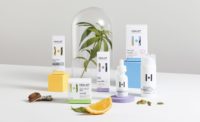Impact Naturals' Cannabidiol (CBD) Products Demonstrate Strong Safety Data in Landmark Study

SOURCE Impact Naturals
Results from a comprehensive, 1000+ participant safety study sponsored by seventeen leading CBD companies, including category innovator Impact Naturals, confirm prior research that orally ingested cannabidiol (CBD) has a strong safety profile. Outcomes of the study include:
- CBD is safe for the liver: No association was found between daily CBD consumption and liver function.
- No increase in daytime drowsiness was reported; in fact, CBD use was associated with improved daytime alertness and less drowsiness.
- CBD use by male study participants did NOT increase the prevalence of low testosterone.
- The prevalence of Type 2 diabetes was lower than expected.
- No product-related adverse events were reported by study participants.
The trial provides data that addresses and will help to minimize the FDA's safety concerns regarding CBD. These results will be shared with the FDA on May 20, 2022.
"The [study] results [indicate] that daily consumption across a range of typical retail products and serving sizes are not associated with elevated liver tests, low testosterone levels, or daytime drowsiness", states Dr. Keith Aqua, a principal investigator who conducted the study with the third-party contract research organization Validcare
"This trial is exceptional as it validates CBD safety as tested across a wide variety of people, including at higher and frequent dosages," says Vassili Kotlov, CEO of Impact Naturals. "Our company was founded on scientific rigor and participating in this study was a top priority. We are passionate about the science of cannabinoids and validating CBD safety is the foundation for our innovative products."
"Concerns about liver health are always important to examine," says Impact Naturals' chief medical officer Dr James Lowder, "and the scattered studies to date were often too small in scope and scale to provide statically meaningful results. Now, we can be quite confident in the overall safety profile of orally ingested CBD, and we look forward to taking this research even further as we advocate for FDA regulation."
"Leaders and serious companies in the CBD space are eager for FDA regulation," Kotlov explains, "because that establishes a baseline of how to create, evaluate and set standards for safety, quality CBD products – and hold all makers accountable to that standard. Without regulation, the CBD market can become chaotic with profit valued over quality and hype over substance, which isn't good for consumer safety and doesn't respect the health benefits that quality products, when correctly used, can provide."
"It's way past time to stop thinking of CBD as a fad," adds Dr. Lowder. "Formulated correctly and in appropriate dosages, research confirms CBD to be a valuable wellness supplement. But it won't be taken seriously until we all hold the industry to a serious standard, just as you would any other health-oriented product. Studies like this are an important step on that journey."
The study involved 1,061 adults 18-75 taking CBD orally (sourced from the seventeen participating companies) for a minimum of 30 days. All product companies supplied certificates of analysis (COAs) which were confirmed by third-party labs to ensure product label accuracy You can read more about the study here:
https://hempsupporter.com/assets/uploads/CBD-Safety-Study_Press-Release_5_17_2022.pdf
"We are excited to report that the 'real-world data' that FDA has been soliciting addresses the agency's safety concerns," stated Jonathan Miller, General Counsel to the U.S. Hemp Roundtable, the hemp industry's national advocacy organization. "The time has come for FDA to regulate CBD and other hemp derivatives."
Looking for a reprint of this article?
From high-res PDFs to custom plaques, order your copy today!





